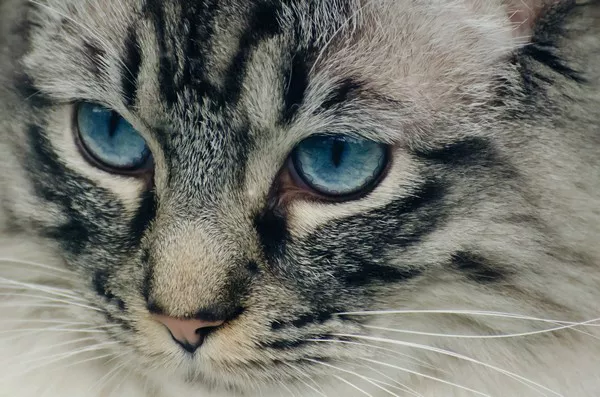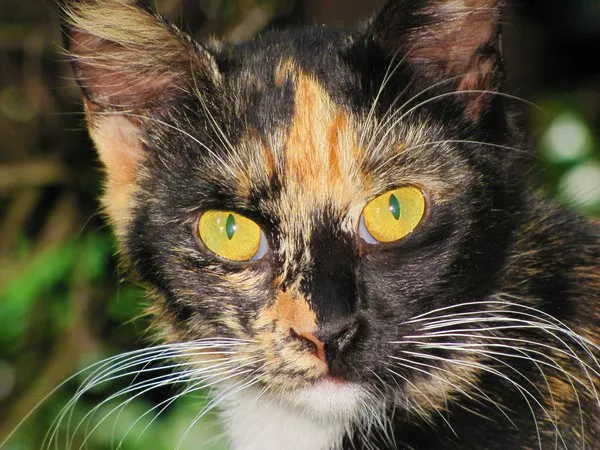The bond between a cat and its owner is often profound, characterized by mutual affection, trust, and companionship. However, when a cat goes missing, many owners are left with a heart-wrenching question: “Will my lost cat remember me?” The answer to this question is deeply rooted in our understanding of feline memory, behavior, and emotions. This essay will explore the intricacies of how cats remember their owners, the factors that influence their memory, and what you can do to increase the chances of reuniting with your lost feline friend.
Understanding Cat Memory
Types of Memory in Cats
Cats, like many animals, possess different types of memory that serve various purposes. Understanding these types can provide insight into how cats may remember their owners and their experiences.
Short-Term Memory: This type of memory allows cats to remember information for a brief period, typically ranging from a few seconds to a few minutes. Short-term memory is crucial for immediate tasks, such as locating food or navigating their environment.
Long-Term Memory: Long-term memory, on the other hand, allows cats to retain information for extended periods, sometimes for years. This type of memory is essential for learning and recalling experiences, such as recognizing familiar faces, places, and routines.
Associative Memory: Cats also have associative memory, which enables them to link specific stimuli with experiences. For example, a cat may associate the sound of a can opener with feeding time or recognize the smell of their owner’s clothing as a source of comfort.
How Cats Form Memories
Cats form memories through a combination of sensory experiences and emotional connections. Their memories are often linked to specific sights, sounds, and smells, which play a significant role in how they perceive their environment and the individuals within it.
Scent Recognition: Cats have a highly developed sense of smell, which is crucial for memory formation. They can remember scents associated with their owners, their home, and other familiar environments. This olfactory memory can last a long time, allowing cats to recognize their owners even after extended periods apart.
Visual Cues: Cats are also adept at recognizing visual patterns and features. They can remember their owners’ faces and body language, which helps them identify and bond with their humans.
Emotional Connections: The emotional bond between a cat and its owner plays a significant role in memory retention. Positive interactions, such as playtime, cuddling, and feeding, create strong emotional associations that can enhance a cat’s ability to remember their owner.
Factors Influencing a Cat’s Memory
Age
A cat’s age can impact its memory capabilities. Kittens and young cats are generally more adaptable and may form memories more quickly than older cats. However, older cats can also retain memories, especially those formed during their formative years. As cats age, they may experience cognitive decline, which can affect their memory and recognition abilities.
Duration of Separation
The length of time a cat is missing can influence its memory of its owner. While cats can remember their owners for a long time, prolonged separation may lead to diminished recognition, especially if the cat has experienced significant changes in its environment or routine. However, many cats have been known to recognize their owners after months or even years apart.
Stress and Trauma
Stressful experiences, such as being lost or encountering danger, can impact a cat’s memory. High-stress situations can lead to changes in behavior and cognition, potentially affecting how a cat recalls its past experiences. However, even in stressful circumstances, the emotional bond with their owner can remain strong, aiding in recognition upon reunion.
Environmental Changes
If a cat goes missing and is found in a different environment, it may take time for them to adjust and remember their previous life. Changes in surroundings, such as new smells, sounds, and visual stimuli, can influence a cat’s ability to recall familiar places and individuals.
Signs That a Lost Cat May Remember You
When a lost cat is reunited with its owner, certain behaviors can indicate that the cat remembers them. Understanding these signs can provide reassurance to owners who are anxiously awaiting their cat’s return.
Recognition Behavior
Upon reuniting, a cat may exhibit specific behaviors that suggest recognition:
Approaching Slowly: A cat that remembers its owner may approach slowly and cautiously, indicating familiarity but also a need for reassurance.
Vocalizations: Cats may vocalize differently when they see their owner. A familiar meow or purr can signify recognition and comfort.
Body Language: A cat that remembers its owner may display relaxed body language, such as a raised tail, slow blinks, or a head bump, indicating trust and affection.
Seeking Comfort
If a lost cat seeks out its owner for comfort and affection, it is a strong sign that the cat remembers the bond they shared. Cats often look for familiar scents and sounds to help them feel secure, and a loving owner can provide that sense of safety.
Engaging in Familiar Behaviors
Cats often have specific routines and behaviors associated with their owners. If a lost cat resumes familiar behaviors, such as following its owner around, curling up on their lap, or engaging in play, it indicates that the cat remembers its previous life and the love it shared with its owner.
What to Do If Your Cat Goes Missing
Immediate Actions
If your cat goes missing, acting quickly can increase the chances of a successful reunion. Here are some steps to take:
Search the Immediate Area: Begin by searching your home and immediate surroundings. Cats may hide in small spaces, so be thorough in your search.
Notify Neighbors: Inform your neighbors about your missing cat. They may have seen your cat or can help keep an eye out.
Create Flyers: Design and distribute flyers with a clear photo of your cat, a description, and your contact information. Post these in your neighborhood and local veterinary clinics.
Use Social Media: Utilize social media platforms to spread the word about your missing cat. Local community groups can be particularly helpful in reaching a wider audience.
Visit Shelters: Check local animal shelters and rescue organizations regularly. Provide them with a flyer and ask if they can notify you if your cat is brought in.
Increasing the Chances of Reunion
To enhance the likelihood of reuniting with your lost cat, consider the following strategies:
Leave Familiar Items Outside: Place your cat’s bedding, toys, or clothing outside your home. The familiar scents can help guide your cat back.
Set Up a Feeding Station: If you suspect your cat is nearby, set up a feeding station with food and water. Check the station regularly to see if your cat returns.
Use Traps if Necessary: If your cat is particularly shy or fearful, consider using humane traps to safely capture them. Consult with local animal control or rescue organizations for guidance on trap placement and usage.
The Emotional Impact of Losing a Cat
Owner’s Perspective
The emotional toll of losing a cat can be significant. Owners often experience feelings of anxiety, sadness, and helplessness. The bond shared with a cat can feel irreplaceable, and the uncertainty of their safety can lead to distress.
Cat’s Perspective
While we cannot fully understand a cat’s emotions, it is reasonable to assume that they may also experience stress and confusion when separated from their owners. The loss of familiar surroundings and the absence of their human companion can be disorienting for a cat.
Coping with Loss
If a cat is not found, owners may need to cope with the emotional fallout of their loss. Here are some strategies for managing grief:
Seek Support: Reach out to friends, family, or support groups for pet owners who understand the emotional challenges of losing a pet.
Create a Memorial: Consider creating a memorial for your lost cat to honor their memory. This can provide closure and a way to celebrate the bond you shared.
Adopt Another Cat: If and when you feel ready, adopting another cat can help fill the void left by your lost pet. However, it is essential to take the time needed to grieve and heal before bringing a new companion into your home.
Conclusion
The question of whether a lost cat will remember its owner is complex, influenced by various factors such as memory types, emotional bonds, and individual circumstances. While there is no definitive answer, many cats have demonstrated remarkable memory retention and emotional recognition, often reuniting with their owners after extended periods of separation.
By understanding feline memory and behavior, cat owners can take proactive steps to increase the chances of reuniting with their lost companions. The bond between a cat and its owner is profound, and the love shared can transcend time and distance. Whether through recognition behaviors, emotional connections, or the simple scent of familiarity, many cats have the capacity to remember their owners, offering hope to those searching for their beloved pets.
Related topic:



























